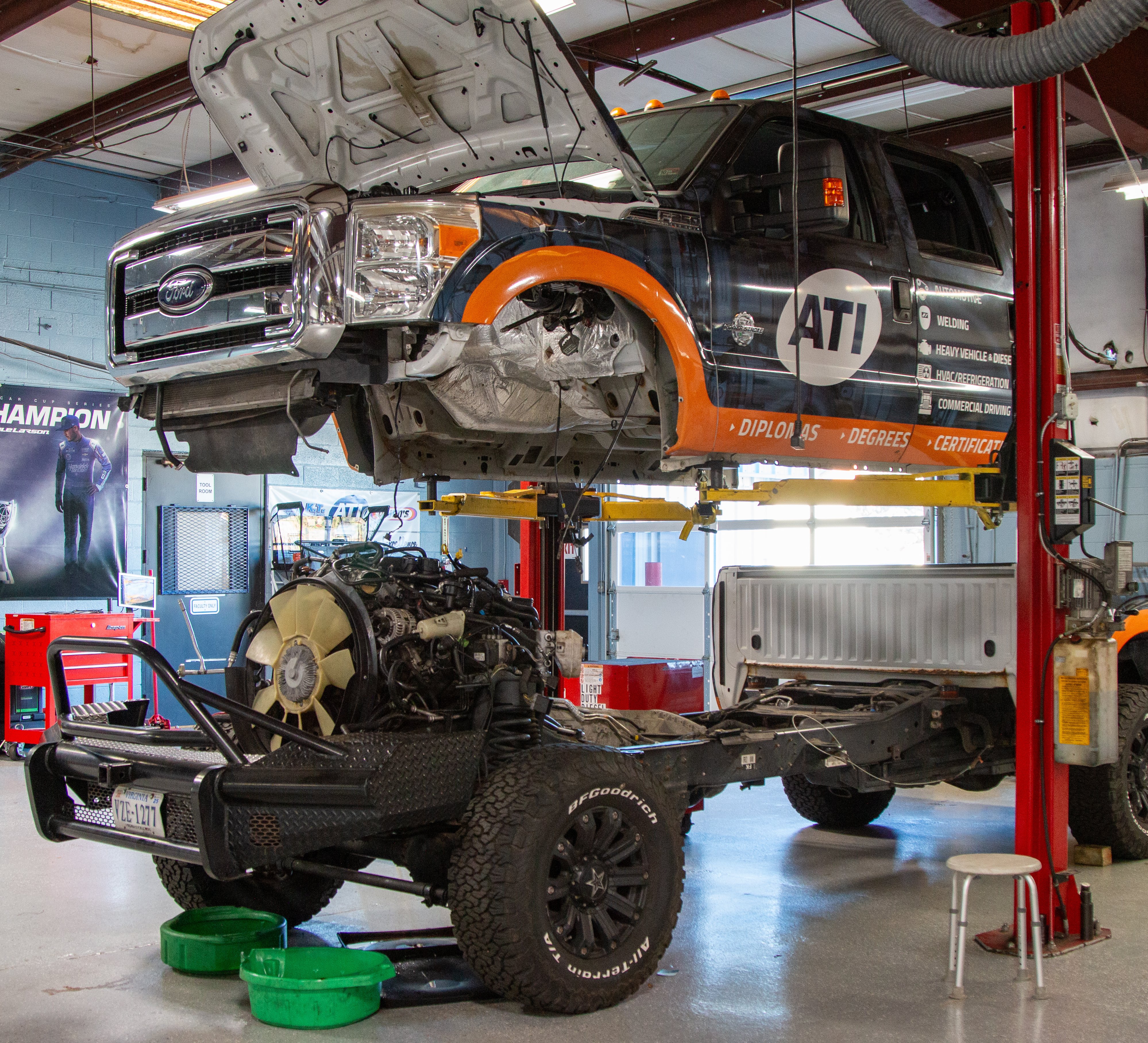Vocational School: A Comprehensive Guide

As the job market becomes increasingly skills-based and technology-driven, more people are rethinking what it means to get a quality education. For many, the traditional four-year college model isn’t the only—or best—path forward. In fact, vocational schools have gained traction as a practical and cost-effective route into new careers.
But what exactly is a vocational school, and how does it differ from other forms of postsecondary education, like trade schools or community colleges? In this comprehensive guide, we’ll answer some of the most common questions about vocational schools, from what they offer to whether they’re worth the investment.
Quick Links
-
What is a Vocational School?
-
What do Vocational Schools offer?
-
Do Vocational Schools give degrees?
-
How long is Vocational School?
-
Are Vocational Schools bad?
-
Are Vocational Schools worth it?
What is a Vocational School?
A vocational school is an educational institution that focuses on teaching the skills and knowledge required for a specific career or occupation. Unlike traditional colleges or universities, which often emphasize broad academic learning and liberal arts education, vocational schools are designed to prepare students for the workforce as quickly and efficiently as possible.
In a vocational school, the curriculum is centered around job-related training. Programs are often hands-on and industry-specific, covering fields like healthcare, information technology, automotive repair, culinary arts, cosmetology, welding, and more. These institutions often work closely with industry employers to ensure that students are learning relevant, up-to-date skills that align with job market needs.
While vocational schools are sometimes confused with trade schools, there is a slight distinction. Trade schools generally focus on skilled trades like carpentry, plumbing, and HVAC, whereas vocational schools often offer a broader array of programs—including those in healthcare, business, or technology.

What do Vocational Schools offer?
Vocational schools offer a wide range of programs tailored to specific career paths. These include:
- Diploma and certificate programs: Typically short-term programs that provide fundamental training and certification in a specific field. Examples include medical billing, HVAC technician training, and dental assisting.
- Associate degrees: Two-year degree programs that provide more in-depth training and often include general education components. These degrees are common in fields like nursing, paralegal studies, or computer networking.
- Bachelor’s degrees: Though less common, some vocational schools offer bachelor’s degrees in applied sciences or management for certain industries.
What sets vocational education apart is its practical, experience-based learning approach. Many programs feature real-world simulations, internships, or externships that allow students to apply their skills in professional settings before graduation. Additionally, vocational schools often operate on flexible schedules to accommodate adult learners, working students, and those with family responsibilities.
Unlike traditional colleges, which may require years of study before entering your chosen field, vocational education streamlines the process, allowing students to gain employment-ready skills in a shorter period.
Do Vocational Schools give degrees?
Yes, many vocational schools award degrees, not just certificates or diplomas. While this can vary by institution, students may pursue:
- Certificates or diplomas, which are typically earned in less than a year and focused on specific skill sets.
- Associate degrees, which generally take about two years and are often offered in technical and healthcare fields such as nursing, medical imaging, or IT support.
- Applied bachelor’s degrees, offered by select vocational institutions in areas like healthcare management, information systems, or business operations.
These degrees are legitimate and often accredited, allowing students to qualify for licensure exams or certifications in regulated professions. While not all vocational schools offer every degree level, many have pathways that enable students to start with a certificate or diploma and build up to a degree through additional coursework.
How long is Vocational School?
One of the most appealing aspects of vocational schools is the accelerated timeline compared to traditional four-year colleges. So, how long is vocational school? The answer depends on the type of program you pursue:
- Certificate programs: 4–12 months
- Diploma programs: 9–18 months
- Associate degrees: Typically 18–24 months
- Bachelor’s degrees (where offered): Usually 2.5 to 3 years in accelerated formats
Some programs also offer self-paced or online learning options, which may shorten or extend completion times based on individual needs. Because vocational schools focus on the essentials for specific careers, they eliminate the need for unrelated coursework, allowing students to complete their education faster.

Are Vocational Schools bad?
It’s a question rooted more in perception than fact: Are vocational schools bad? The short answer is no, but it’s important to choose the right school and program for your goals.
Historically, vocational education was sometimes seen as a “lesser” alternative to traditional college. But that perception is rapidly changing as employers seek job candidates with practical experience and industry-specific skills. In many sectors, employers prefer candidates who can hit the ground running rather than those who require additional training after graduation.
Here are a few reasons vocational schools are a strong option:
- Focused learning: You gain targeted, career-relevant skills.
- Hands-on experience: Labs, simulations, and externships help bridge theory and practice.
- Affordability: Many vocational programs cost significantly less than a four-year degree.
- Faster entry into the workforce: Ideal for those who want to change careers or upskill quickly.
Of course, as with any educational choice, it’s essential to research the school’s accreditation, graduation rates, job placement assistance, and student support services.
Are Vocational Schools worth it?
Let’s look at the pros and cons to answer: Are vocational schools worth it?
Pros:
- Shorter duration: You can enter the workforce in months, not years.
- Career-focused: Programs are aligned with job market demands.
- Flexible options: Evening, weekend, and online classes are often available.
- Smaller class sizes: Students often receive more one-on-one instruction.
Cons:
- Limited general education: If you’re looking for a broad academic experience, vocational schools may not be the right fit.
- Transfer credit challenges: Not all credits earned at a vocational school may transfer to a traditional college or university.
- Narrow focus: If you’re unsure of your career path, the specialized nature of vocational training might feel restrictive.
Ultimately, vocational schools are ideal for people who have a clear career goal and want to gain practical experience quickly. They are particularly valuable for adult learners, career changers, and those seeking an alternative to the traditional college experience.
Conclusion
Vocational schools play a vital role in the modern education ecosystem. They provide targeted and accelerated training for some of the most in-demand careers today. Whether you’re interested in becoming an auto repair technician, welding, medical assistant, web developer, paralegal, or chef, vocational schools offer a practical path to achieving your goals.
So, if you’ve ever wondered, what is a vocational school, or are vocational schools worth it, the answer may very well be yes, especially if you’re seeking a faster, more focused route to a stable and rewarding career. At The Advanced Technology Institute (ATI), we offer hands-on programs tailored to today’s workforce needs. Explore how ATI can help you take the next step toward your future.
Industry Knowledge
Welcome to the Advanced Technology Institute's Blog, your resource for industry insights and discussions on technologies shaping the future of automotive, heavy vehicle, hvac, welding, and other related career paths.
Explore how ATI's curriculum and hands-on learning opportunities can propel your career in the tech-driven world.
%20(1).jpg)

